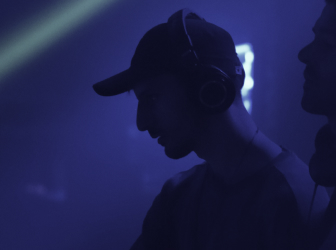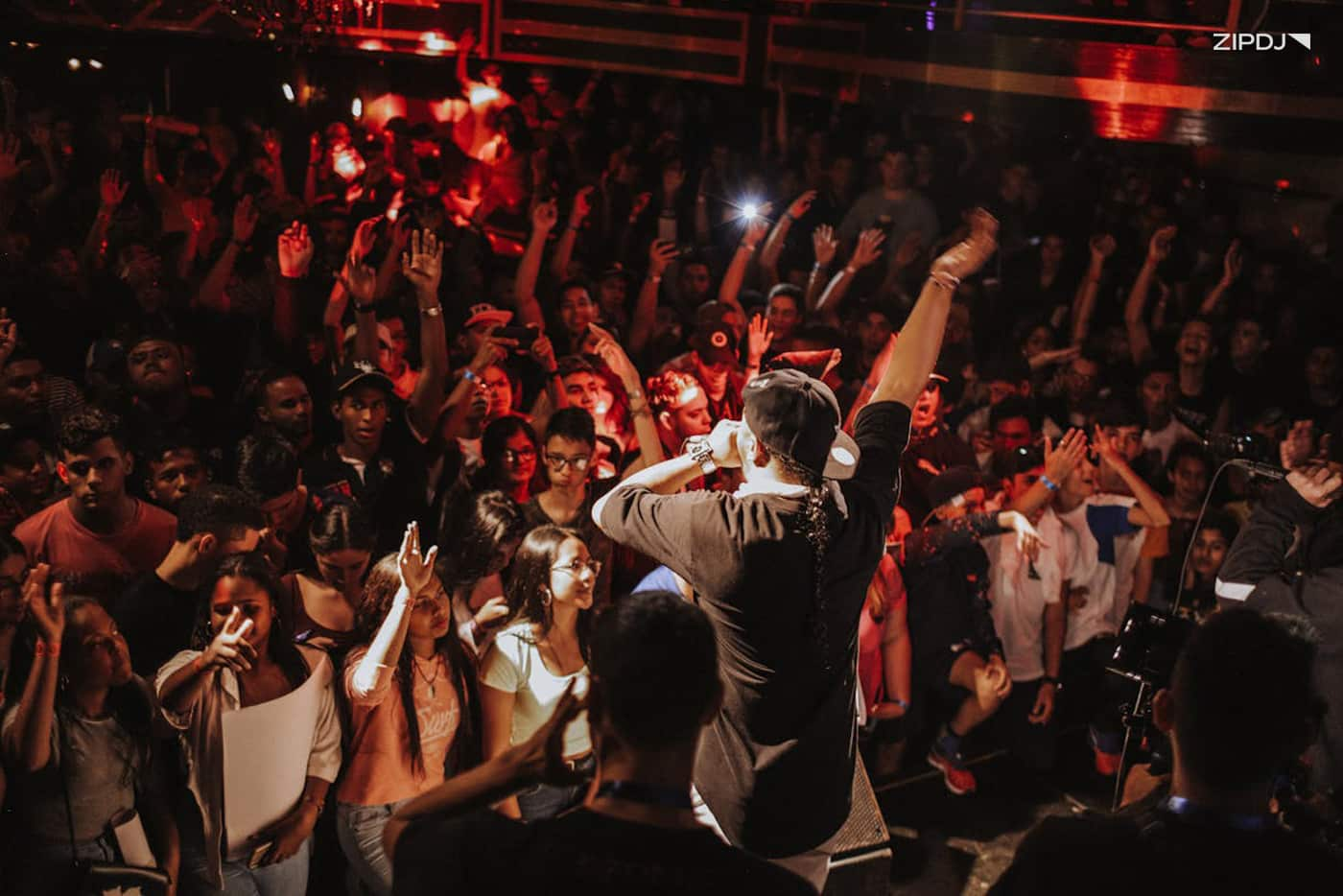How To Make A DJ Contract In 2025 (Step-By-Step)

Transitioning from a bedroom DJ to a fully-fledged professional is exciting, but some considerations must be addressed before your paid gigs.
A DJ contract is often used to clarify various factors, from basic event details and payment terms to the DJ services offered and your cancellation policy.
This guide will help you draft a DJ contract covering these and other essential elements, with a handy DJ contract template you can use for your upcoming events.

What Is A DJ Contract?
A DJ contract, sometimes referred to as a DJ service contract, is a document that outlines a legal agreement between a DJ (disc jockey) and their client.
The contract specifies various terms, from the event date and DJ services provided to the expected payment schedule and any legal protections that must be covered.
It can also be used to detail the DJ and promoter’s responsibilities, such as working conditions and additional services, and the protocol for managing music requests.
Some DJs include basic contract information, such as payment terms and DJ services, in their DJ proposals, which can help streamline the contract creation process.
How Do DJ Contracts Work?
A DJ contract is vital for anyone looking to take their DJ career to the next level and secure regular gigs through booking agents and promoters with transparent terms and conditions.
It is a legally binding document that clearly outlines these terms and conditions, and the contract serves as clarification in the event of any disputes.
DJs work with the event organizer before the gig to determine many of the elements of a DJ contract, including the duration of the gig, compensation, and other services provided.
Once these details are agreed upon, both parties sign the contract, and the DJ receives appropriate payment once the gig has been completed.
Should the event overrun or other additional services be required, the DJ can charge an extra fee based on their pre-established rates as per the terms of the contract.
Why A DJ Contract Is Important
Understanding the significance of a DJ contract is vital to getting DJ gigs without running into problems at the event or when settling payment for services rendered.
Creating and approving such contracts is typically included on professional DJ checklists, representing a written agreement to the result of negotiations between the DJ and their clients.
Some of the other reasons why creating and signing a DJ service contract is important include:
- Clarification of event date and other requirements: On a basic level, a DJ contract allows all parties to be completely clear on when and where the event is set to take place, along with the relevant fees for services rendered and specific stipulations from clients, such as adherence to dress codes.
- Protection against client cancellations: A clear cancellation policy is another critical element of a DJ contract, whether due to force majeure, such as natural disasters, or ensuring DJs retain any deposit should the client cancel the event.
- Ensuring all relevant fees are collected: Different types of DJs offer various services depending on their gigs, and a DJ contract specifies the core services and optional extras with transparent prices to avoid confusion when paying the fees.
- Providing coverage in the event DJ gear is damaged: With DJ equipment costing thousands of dollars, clarification of insurance and responsibility for payment in the event of damage is another important reason why a DJ contract should be created.
This can be outlined in much the same way as an independent contractor agreement, protecting all parties from potential conflict and ensuring a smooth collaboration process.
Find out more about ZIPDJ’s services.
Do You Need A Lawyer To Create A DJ Contract?
A DJ contract becomes legally binding once both the DJ and client have signed on the dotted line and agree on the details included in the contract.
While a lawyer isn’t required to create a DJ contract, consulting one is advisable in some circumstances to ensure legal protections are in place.
This is particularly important for DJs performing at significant events and professional gigs where a comprehensive contract needs to be thoroughly checked.
Although some DJs complain that a DJ contract costs them gigs, it pays to err on the side of caution and engage with clients to create mutually satisfactory agreements.
If in doubt, you should seek legal and financial advice from a qualified professional who can oversee the creation of a DJ contract and ensure everything is above board.
How To Make A DJ Contract In 2025 (Step-By-Step)
Now that we’ve covered the key facts about a DJ contract and how both the DJ and the client can benefit from it, it’s time to outline the process for creating a robust DJ contract.
When drafting a DJ service contract, consult directly with your clients to ensure everyone is on the same page before they sign it.
Step 1: Include DJ & Client Information
The first essential element to include in a DJ service contract is the basic information of both the DJ and the client, with the full names of all parties.
While a DJ bio may also include DJ aliases, a contract doesn’t need this information, provided the DJ’s full name is stated at the head of the document.
This section can also include DJ and client addresses and other contact information to streamline communication between the DJ and the promoter.
Some DJ booking agencies will handle this for you based on the information you’ve provided and assist with liaising with the promoter before the event.
Step 2: Add The Event Details
The next step is to outline the details of the event, including where it is scheduled to take place, when the event starts and finishes, and other relevant information.
If the event has a theme that requires specific attire or other features, such as for a DJ fundraiser, this section can outline this in detail.
This section can also include any requirements for the setup area, access to power supplies, and provisions for shelter in the event of bad weather at outdoor events.
Step 3: Outline The DJ Services
This section covers the DJ’s services in detail, including basic DJing services for performing the gig and the anticipated event duration.
Different types of DJs offer various services, such as corporate event DJs, who may also MC and make announcements in addition to mixing music.
If additional people are involved in these services, such as with back-to-back DJing, this should be clearly stated in this contract section.
It should also factor in the time needed to prepare the setup area for the gig and the teardown time for dismantling any equipment the DJ agrees to take responsibility for.
Step 4: Include Equipment Requirements
Just as the services a DJ provides can vary considerably, so can the equipment needed for the gig change depending on the DJ’s style and the client’s requirements.
If you’re writing a contract that includes a mobile DJ setup, the selection of gear the DJ agrees to bring to the event should be clearly stated in the contract.
In contrast, DJs performing in clubs will expect the DJ booth to be ready before the event starts, and the contract should be transparent regarding these expectations.
If in doubt, refer to your DJ checklist and verify all equipment and accessories, such as lighting stands and microphones, to clarify this section is accurate.

Step 5: Clarify Any Additional Responsibilities
The next section of your contract specifies any additional responsibilities for both the DJ and client that aren’t already covered in the essential services and equipment sections.
While the contract doesn’t need to dive into DJ etiquette, it may be necessary to outline provisions such as security, crowd control, and compliance with local laws.
This section can also clarify the DJ’s requirements from the client, such as access to the venue before the gig begins and other practical considerations.
Related reading: A step-by-step guide to writing a DJ resume.
Step 6: Detail Song Request Procedures
This section is an optional extra for a contract and primarily applies to wedding and mobile DJs who are open to taking song requests from guests.
This can include outlining how attendees can submit requests in advance to allow the DJ to organize their playlists for the performance.
It can include the availability of tracks for music request selections, with some DJs presenting a price list for requests for overplayed songs.
Step 7: Outline Any Legal Issues
A robust DJ service contract should cover any legal issues in detail, from clauses surrounding indemnification and liability to verification regarding DJ insurance.
This section focuses on how injury and equipment damage will be addressed, including force majeure stipulations for natural disasters or other unforeseen disruptions.
You should also include processes for dispute resolution so that any disagreements over the contract can be approached in a mutually agreeable manner.
Step 8: Include Recording & Copyright Stipulations
With DJs expected to declare earnings from streaming services, a DJ service contract should cover any rules surrounding the recording and broadcasting of the event.
This also includes any use of images and videos from the event online or for commercial purposes and relevant restrictions placed on the DJ, client, and event attendees.
Step 9: List Your DJ Service Fees
The next step in compiling a contract is to outline the applicable DJ rates for the event, along with optional extras and hourly fees if the event exceeds the contracted time.
For this section, it should be clarified that the promoter is responsible for these and any other agreed-upon payments, such as travel and parking.
Before completing this section, ensure you negotiate your DJ prices with the promoter to get the best price for your services at a clearly defined payment schedule.
Step 10: State Your Cancellation Policy
Lastly, every contract should include a cancellation policy that details the procedures and consequences for all parties should the event fail to go ahead.
This section may include different policies depending on whether the DJ or client is the cause for cancellation, with varying conditions for each circumstance.
Timelines for cancellation, along with applicable fees and retention of deposits, should be expressed in clear terms in this section.
Ready to build your music library? Sign up for a ZIPDJ subscription.
DJ Contract Template
To help you get your career off on the right foot, here’s a DJ contract template you can use to complete the key fields and share with clients and other relevant parties.
DJ Services Agreement
This DJ Service Contract is between [DJ NAME] and [CLIENT/PROMOTER NAME]. It is effective upon the signature of both parties, effective [DATE], to accomplish the mutual commitments and promises outlined below.
Both parties agree to the following:
1. Event Date & Details: Include all event details in this section, from the date and time the event starts to the location.
2. DJ Services/Additional Services: This section outlines the DJ’s core services and lists additional, optional extra services if applicable.
3. Custom Requests Procedure: If relevant, this section can be included to outline the procedure for taking and fulfilling music requests from event attendees.
4. Financial Terms: This section should provide a detailed overview of DJ fees, payment schedules, deposits, and payment methods.
5. Equipment: If the DJ is expected to provide equipment for the event, this section should cover this gear or offer clarification regarding equipment the client/venue is expected to provide.
6. Force Majeure: This section can be included to clarify whether or not either party is liable for cancellations due to natural disasters or other acts of God that lead to failure to perform.
7. Limitation of Liability: DJs can include this section when providing DJ equipment for the event to clarify liability in the event of injury or equipment damage.
8. Confidentiality: This section ensures that both parties agree to not disclose any confidential information to third parties throughout the duration of the contract.
9. Miscellaneous: Any additional terms and conditions, such as required notice periods for cancellation and relevant applicable laws and legal considerations, can be included in this section.
10. Contract Termination: Lastly, use this section to clarify the protocol for contract termination, including any refunds owed and the DJ’s rights to retain a non-refundable deposit.
The parties agree to the terms and conditions set forth above, which supersede all prior negotiations, understandings, and agreements between them.
[DJ NAME PRINTED] [CLIENT NAME PRINTED]
[DJ NAME SIGNATURE] [CLIENT NAME SIGNATURE]
[DATE] [DATE]
Summary
Developing a successful career as a DJ requires creating a DJ contract that outlines the terms and conditions of your performance in agreement with your clients.
Using the structure and suggestions in this article, you can clarify your DJ services, payment terms, legal protections, and other vital aspects of your DJ contract.
As your career evolves, your contract can be updated to include new services and fees based on your reputation and track record of meeting your client’s expectations.
Not a member ?
Join Today for Unlimited Music Downloads. Visit zipdj.com for more information.



